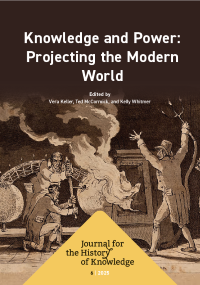Call for Proposals - Special Issue 2028
2026-02-01
The Journal for the History of Knowledge features an annual special issue, compiled by guest editors, which explores a theme central to the journal’s scope. We are currently accepting proposals for the 2028 Special Issue.
Read more about Call for Proposals - Special Issue 2028


